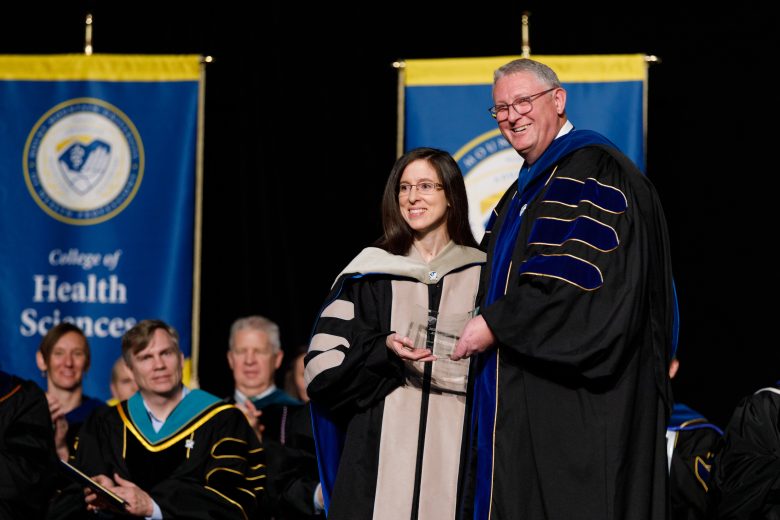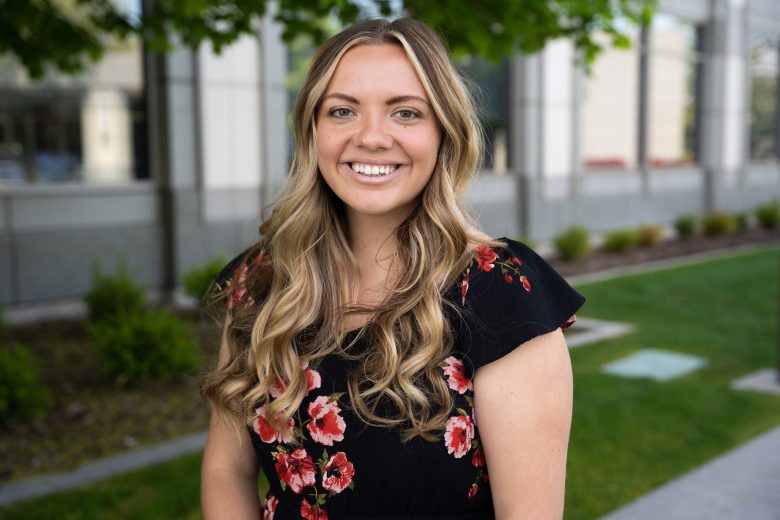 Jennifer Austin, PhD, LAT, ATC, GTS, is the Program Director of our Doctor of Philosophy in the Health Sciences (PhD) program. Austin received her PhD in higher education and her master’s in physical education with a specialization in athletic training from Ohio University. For the past 17 years, Austin has worked as an instructor in higher education where she has provided support and learning opportunities for her students.
Jennifer Austin, PhD, LAT, ATC, GTS, is the Program Director of our Doctor of Philosophy in the Health Sciences (PhD) program. Austin received her PhD in higher education and her master’s in physical education with a specialization in athletic training from Ohio University. For the past 17 years, Austin has worked as an instructor in higher education where she has provided support and learning opportunities for her students.
Prior to working at RMUoHP and getting her PhD, Austin worked in Nova Scotia, Canada. While there, she volunteered as an athletic trainer with Acadia University’s football team, a women’s ice hockey team, and a youth hockey team known as the Valley Wildcats. Later she was offered a lecturer position in the Department of Kinesiology at Acadia University. “This experience secured my love of teaching in a higher education environment,” said Austin. “After two years in that role, I decided to return to school to complete my PhD at Ohio University.” Upon gaining her PhD, Austin was offered a position at Colby-Sawyer College in New Hampshire where she taught and worked as the program director and as clinical education coordinator for the college’s undergraduate athletic training education program for the next nine years. Eventually, Austin found her way to RMUoHP as an adjunct professor. “The experience was very rewarding and I enjoyed working with the students at this level,” said Austin. “Thus, when I heard of the opening for the program director position I applied.”
Outside of her position as an educator, Austin serves in several other healthcare areas. Among these are working as a CAATE peer reviewer, attending local and regional conferences, taking professional development courses, and as a reviewer on several journals. Austin works to be involved and aware of the practices and ideas in circulation regarding her program. “I have not had time to do much with clinical practice,” said Austin. “But as an educator, it is vital to stay current with practice so you can ensure students are getting the most valuable experience possible.”
Austin described the importance of athletic training as the “grassroots” level of healthcare. “We are often the first healthcare provider a student-athlete sees,” said Austin. “We help individuals through the full healthcare continuum.” Athletic trainers are key contributors to the health of student-athletes as front-line support. Their work not only helps student-athletes get back on the field but also helps to lower healthcare costs. “There is significant data on how athletic trainers reduce healthcare costs for individuals, entities, and the community at large,” said Austin. The scope of what is covered by ATs has also expanded. “Athletic training has expanded significantly beyond traditional environments, including performing arts, military, industrial settings, rural and urban hospitals, and with police and fire departments,” said Austin.
Along with appreciating the importance of athletic training, Austin finds the work itself to be enjoyable and rewarding. What specifically does Austin find rewarding about her work? “As a clinician, seeing an individual who has had a significant injury get back to doing what they love. As an educator, seeing students excel and exceed their own expectations as they develop as professionals,” said Austin.
As the Program Director for the PhD program at RMUoHP, Austin hopes to be able to share her passion for the athletic training field with her students. “I hope they come out of this having a sense of accomplishment,” said Austin. “I also hope they grow as individuals and make connections they can take with them for years to come.”



